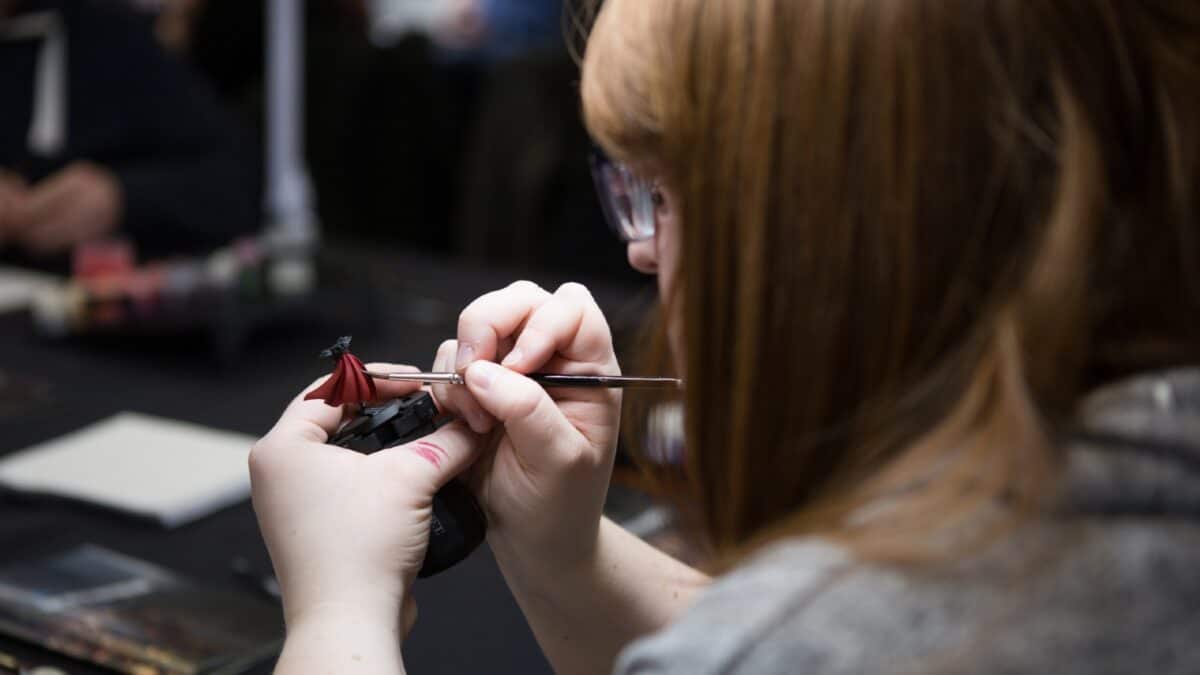At a price-to-earnings (P/E) ratio of 24, shares in Games Workshop (LSE:GAW) don’t look like an obvious bargain. But the FTSE 250 stock is better value than its headline number implies, I believe.
The company’s business model means it has extremely low capital requirements. As a result, its share price might look more expensive than it actually is.
Paying up for quality
A P/E ratio of 24 puts Games Workshop shares at roughly the same multiple as Starbucks. But the gaming company has much lower capital requirements and this is important for investors to consider.
Should you invest £1,000 in Games Workshop right now?
When investing expert Mark Rogers has a stock tip, it can pay to listen. After all, the flagship Motley Fool Share Advisor newsletter he has run for nearly a decade has provided thousands of paying members with top stock recommendations from the UK and US markets. And right now, Mark thinks there are 6 standout stocks that investors should consider buying. Want to see if Games Workshop made the list?
Games Workshop earns £181m in operating income. With only £105m in fixed assets to maintain, nearly none of this gets used in the business, meaning its available for growth or shareholder returns.
By contrast, Starbucks generates $5.7bn in operating profit. But with almost $16bn in property, plant, and equipment, only $4.4bn of this is ultimately available to shareholders.
Starbucks isn’t a bad business by any means. But the fact that two stocks trade at the same multiple doesn’t make them equivalent investments and this is worth keeping in mind with Games Workshop.
Dividends
The advantage of having low capital requirements shows up when it comes to dividends. Games Workshop currently earns £4.24 per share and pays out £4.20 in dividends.
At first sight, that might look unsustainable – income investors often think about how well covered a company’s dividends are by its earnings. And there’s not much headroom at the current levels.
I view this as positive though. It indicates that the firm doesn’t need much cash to maintain its earnings and is therefore is in a position to distribute virtually all of its earnings to shareholders.
Of course, no company can consistently pay out more than it earns and there’s always the risk of a dividend cut if things turn down. That’s also true in a business with higher capital intensity though.
Growth
One of the challenges for Games Workshop is growth. The business has managed to increase its revenues and profits impressively over the last decade, but there’s a question of what comes next.
A good amount of the company’s growth has come from expanding into new countries. But with consumer spending under pressure – especially in China – there’s a risk this might take a while.
Increased licensing revenues are another possibility. And I think shareholders have good reason to be optimistic about Amazon developing its intellectual property into a film and TV series.
This could be a double positive. As well as direct revenues from licensing, the company’s merchandise division (which makes up 95% of total sales) could benefit from additional exposure.
The bottom line
Ultimately though, Games Workshop’s low capital intensity is extremely important. Even if revenue increases take time to come through, the business is still in a position to return cash to shareholders.
The stock might trade at high P/E ratio relative to the rest of the FTSE 250, but that doesn’t tell the whole story. A closer look reveals the company’s shares are better value than they might seem.








